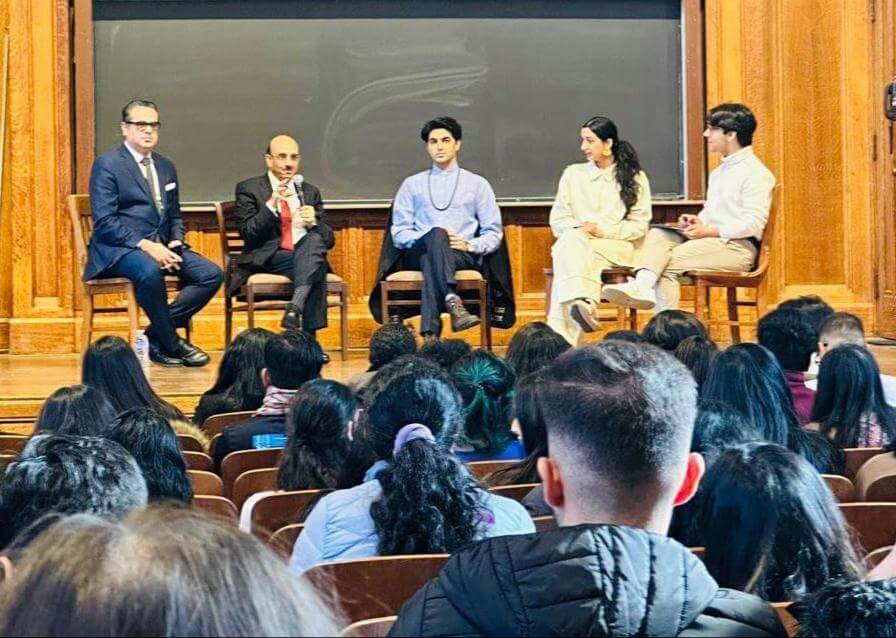Pakistan Ambassador to the US Masood Khan emphasized the need for the international community to find collective solutions to dealing with the challenges of climate change and its dire consequences for the planet. “The devastating floods in Pakistan last year testified to the growing magnitude of climate disasters,” he added.
“Those who have contributed the least to global warming are suffering the most. For 30 years, the most vulnerable countries have pressed for a fund through which the countries that have added the most to global carbon emissions would help vulnerable countries recover from climate disasters and other consequences of climate change, including droughts, hurricanes and floods”, Ambassador Masood Khan made these remarks while participating in a panel discussion organized at the prestigious, Yale University. The creation of loss and damage fund was an achievement in itself, however, the fund itself had to be funded”, he emphasized.
Reflecting on the historical genesis of international action on the environment, the Ambassador recalled that the United Nations Conference on Environment and Development was held in Rio de Janeiro in 1992 that called for an integrated approach towards sustainable development and laid down basic framework for climate justice that evolved gradually.
While giving a detailed account of the devastation caused by unprecedented floods in Pakistan, the Ambassador said that Pakistan has already surpassing a health emergency post covid pandemic when that deadly flood came and added to the misery of our people. In particular, Masood Khan highlighted that more than 70% of 33 million flood affected population consisted of women and children. He highlighted that 600,000 were pregnant women with 2,000 women giving birth every day in an unsafe and unhygienic conditions. He said that gastrointestinal infections and other waterborne diseases including dengue fever and malaria had created a “myriad of challenges”.
The Ambassador thanked the US government, civil society, philanthropists and especially Pak-American community for their generosity during rescue and relief operations and called upon international community for long-term commitment for reconstruction and rehabilitation phase. The Ambassador elaborated that apart from global politics on climate change, it was imperative that Pakistan was supported by the international community to rehabilitate displaced population, rebuild a resilient infrastructure and reconstruct the destroyed neighborhoods, schools and healthcare facilities.
Other panelists included Dr. Saad B. Omer, Director of the Yale Institute for Global Health, Saad Amer, climate activist and the Founder of Justice Environment and Aditi Mayer, a visual storyteller and sustainability activist.
The panelists discussed how environment is impacting health globally and South Asia, in particular, has been experiencing a rapid rise in unplanned urbanization and climate change, which has been accompanied by increased levels of pollution and compromised water hygiene. Moreover, panelists highlighted the deleterious consequences to the health of South Asia’s most vulnerable populations as a result of climate change.
The panel discussion aimed at bringing together environmental ambassadors and public-health trailblazers to discuss the interplay between the health of the planet and its people which was followed by an interactive session with the audience.
New Haven, Connecticut, February 13, 2023




